Skin Care Before and After Surgery
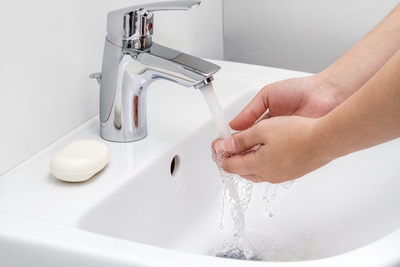
Skin is a vital buffer that keeps out harmful bacteria. When incisions are made for surgery, the infection-causing bacteria have a pathway into the body, which can lead to infection. Bacteria can also be introduced to the body from the surgeon’s hand or if it was already living on the skin. In order to prevent infection, Specialty Surgical Center uses top of the line safety protocols to ensure a clean environment for the patient. Our team of surgeons does this by using clean equipment and wearing a clean mask, gloves, and scrubs, but we also do this through skin care.
Prior to the surgery, the patient’s skin is thoroughly cleansed using disposable cloths containing 2% chlorhexidine gluconate (CHG) antiseptic solution. However, proper surgical skin care begins before that!
Patients should come in to Specialty Surgical Center bathed and dried unless otherwise instructed by the pre-op nurse. During their shower before the procedure, the patient should wash the surgical area with soap and rinse fully. Typically patients are instructed to stop shaving their bodies about two days before surgery. Patients should not use lotions, makeup, or perfume before coming in for surgery. This is because such products could reduce the effectiveness of the CHG antiseptic solution. Depending on the patient and the type of procedure they need, special cases may be made to allow patients to shave and use a medicated lotion, but the decision is up to the patient’s surgical team.
Following the procedure, patients need to pay special attention to the way they treat their skin. Hands should be thoroughly washed before touching the wound each and every time, so new bacteria doesn’t cause an infection. However, it’s not just the hands that need to stay clean. Patients should always keep the incision site clean as well. This means carefully changing the bandages if the area gets dirty and gently washing the area in the shower. Patients should not take a bath or otherwise submerge the wound in the weeks following the surgery.
Cleanliness is not the only way patients can help their skin after surgery. Our physicians recommend using lip balm if the lips become dry after the procedure. This can especially be true of patients who had a tonsillectomy, tracheotomy, or any other procedure that required the mouth to be open for long periods of time. Finally, we recommend drinking plenty of water after leaving Specialty Surgical Center. Water helps revitalize the skin and helps it repair any dryness or damage.
Specialty Surgical Center is located in Sparta, New Jersey and our staff consists of board certified surgeons and anesthesiologists performing procedures in Orthopedics, Sports Medicine, Spinal Care, Podiatry, Urology, Pain Management, ENT, Hand Surgery, Lithotripsy, Brachytherapy, GYN and Laser Surgery.
For more information about Specialty Surgical Center, call 973-940-3166 or visit our Contact Page.
Fast Facts About Ambulatory Surgical Centers

Specialty Surgical Center stands out from other surgery centers in New Jersey because we are an ambulatory surgical center. We believe that doing so provides countless benefits to the surgeon and most importantly, the patient. We explain exactly what we mean in this guide to ambulatory surgical centers.
Words to Know:
Outpatient – Patients who receive care without having to spend the night at a hospital.
Ambulatory Surgical Center – A state-of-the-art facility that is certified and licensed to meet or exceed state standards of a regular hospital. These centers often host physicians who specialize in particular fields. They are similar to hospitals, but patients are not allowed to stay overnight at the facility.
Minimally invasive – A technique that only uses small incisions to accomplish its goal. It’s typically associated with shorter healing time.
Outpatient surgery is what helps us keep our price so low. In fact, our prices have not risen in three years. This is because in a traditional hospital setting, patients may need to stay at a hospital a day or two in advance as they wait for their scheduled surgery. However, Specialty Surgical Center performs the surgery the same day.
On top of pricing, we’ve found that patients may prefer an ambulatory surgical care because of the after care. While we do have a recovery room, patients are able to leave the same day and recover in the comfort of their homes.
Using minimally invasive techniques with most of our procedures can be equally, if not more effective than traditional surgery. This means that the patient can heal quicker because the incision is smaller and there is lower risk of infection or surgical complication using this technique.
Four Fast Facts:
- Ambulatory Surgical Centers (ASC’s) were invented after physicians were frustrated by scheduling delays, lengthy recovery times, and limited space in the operating rooms of hospitals.
- Orthopedics and pain management are among the top specialized procedures, and Specialty Surgical Center does both.
- ASC’s are usually covered by insurance.
- ASC’s are associated with a shorter wait. While in a hospital, patients may need to wait weeks for an appointment while Specialty Surgical Center guarantees patients will be seen within two business days on their first visit.
Specialty Surgical Center is located in Sparta, New Jersey and our staff consists of board certified surgeons and anesthesiologists performing procedures in Orthopedics, Sports Medicine, Spinal Care, Podiatry, Urology, Pain Management, ENT, Hand Surgery, Lithotripsy, Brachytherapy, GYN and Laser Surgery.
For more information about Specialty Surgical Center, call 973-940-3166 or visit our Contact Page.
How Rhinoplasty Affects the Rest of the Face
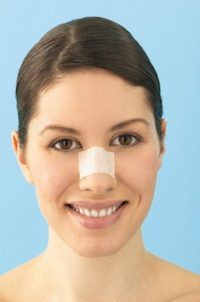
Since it is in the middle of the face, the nose borders or touches many other facial features. For this reason, patients often wonder if their rhinoplasty will affect the rest of the face. To answer the question, the physicians at Specialty Surgical Center take two approaches. In the short term, we can tell patients what to expect immediately after the surgery, while the next step is to evaluate the long term and see how the rest of the face can change following rhinoplasty.
Fortunately, our ear, nose, and throat physician, Dr. Victor G. Gentile, can address both because he is both an otolaryngologist and plastic surgeon. He is an expert in each field and is a member of the American Academy of Otolaryngology/Head and Neck Surgery, American Academy of Facial Plastic and Reconstructive Surgery, and The New Jersey Academy of Otolaryngology/Facial Plastic Surgery.
After rhinoplasty, patients may experience minor changes in the rest of their face. For example, we’ve found that in the Specialty Surgical Center recovery room, some patients have dry lips following their procedure. This can persist, as patients may need to breathe and sneeze out of their mouths. Lip balm should do the trick, especially if applied before sleeping. This prevents the lip balm from getting rubbed off when patients talk.
Additionally, it’s possible for patients to have minor bruising or “bags” under their eyes. It is not common. Our surgeons assure patients that any droopiness or bruising will subside after about a week. Our staff advises against wearing eyeglasses after the supporting splint comes off, but our physicians can give patients tips on how to continue wearing glasses without damaging the nose.
Finally, patients can expect their nose to appear swollen in the weeks following the surgery. The length of the swelling period varies from patient to patient. However, our physicians know of a few tricks to get the swelling to subside sooner. For example, keeping the head elevated and using cold packs on the nose may help.
Aside from the short-term effects, patients seeking the rhinoplasty procedure for cosmetic reasons often ask whether the rest of their facial features will be affected after the nose is reshaped. Unfortunately, the answer is very indirect. Beauty is in the eye of the beholder, as they say. While rhinoplasty does not typically change the rest of the face, a smaller nose will make the eyes and lips more noticeable. While rhinoplasty can be used to balance the face, the other features may become more prominent for some patients. For this reason, we urge patients to speak with Dr. Gentile before their surgery to learn exactly how the rest of the face will be affected.
Specialty Surgical Center is located in Sparta, New Jersey and our staff consists of board certified surgeons and anesthesiologists performing procedures in Orthopedics, Sports Medicine, Spinal Care, Podiatry, Urology, Pain Management, ENT, Hand Surgery, Lithotripsy, Brachytherapy, GYN and Laser Surgery.
For more information about Specialty Surgical Center, call 973-940-3166 or visit our Contact Page.
Turf Toe Among Athletes

Dr. Kevin White meets with athletes for turf toe treatment fairly regularly at Specialty Surgery Center. This isn’t surprising considering turf toe is caused by hyperextension of the foot. While this can happen to anyone, it occurs more often in athletes who repeatedly push off the ground.
Football – Football is where turf toe got its name. Many football stadiums have made the switch to artificial turf from natural grass. As a result, players are starting to injure their big toes more because the playing surface is harder with less cushion for impact. For this reason, the Specialty Surgical Center staff recommends football players wear supportive shoes that can help absorb shock.
Runners – Runners are especially prone to turf toe due to their famous runner’s stance. Before taking off on a sprint, runners generally get into a crouched position with their back knee low to the ground and their foot hyperextended behind them. While this is a great stance to gain momentum, it puts a lot of pressure on the MTP joint and plantar plate.
Dancers – Dancers showcase their talent by leaping into the air and dancing through a beautiful performance. Unfortunately, pointe ballet shoes and ballerina flats do not offer a large cushion for the feet, making them prone to turf toe. In fact, we see turf toe occur in many sports that require flexible shoes. Dancers should consider their risk of developing turf toe if their style of dance involves putting most of their weight on the ball of their foot.
Many other athletes practicing sports like basketball, soccer, gymnastics, and others that involve running or jumping are at risk of developing turf toe. If athletes suddenly feel pain after a jump or run and have consistent pain and swelling afterward, we strongly encourage them to visit our podiatrist for X-rays and treatment. Turf toe is graded on a 1-3 scale in terms of severity, and mobility may be compromised if patients wait until they are at grade 2 or 3.
Dr. Kevin White is an expert in treating turf toe. He can repair a torn plantar complex or bone fracture within the foot using minimally invasive surgery. With a reduced recovery time compared to traditional surgery, your athlete will be back to their sport in no time!
Specialty Surgical Center is located in Sparta, New Jersey and our staff consists of board certified surgeons and anesthesiologists performing procedures in Orthopedics, Sports Medicine, Spinal Care, Podiatry, Urology, Pain Management, ENT, Hand Surgery, Lithotripsy, Brachytherapy, GYN and Laser Surgery.
For more information about Specialty Surgical Center, call 973-940-3166 or visit our Contact Page.
The advice and information contained in this article is for educational purposes only and is not intended to replace or counter a physician’s advice or judgment. Please always consult your physician before taking any advice learned here or in any other educational medical material.
Treatment Options For Women With Vaginal Agenesis

Vaginal agenesis is a complex condition that causes the muscular canal (vagina) within the pelvis to not form properly during fetal development. As a result, vaginal agenesis is usually diagnosed shortly after birth or during adolescence. This condition varies from patient to patient. In some instances, patients are born with a small uterus or no uterus at all, which can make having sex and becoming pregnant difficult. Other complications with the cervix, kidneys, and spine may be present in patients with this condition.
While physicians and researchers are still working on techniques to successfully transplant a healthy uterus into patients with vaginal agenesis, current treatment options for this condition depend on the severity of the disorder itself. Fortunately, many young women with vaginal agenesis have normal ovaries and normal external genitalia. For these women, going through puberty is similar to other young girls in that they will develop breasts, and underarm and pubic hair normally. The only exception would be that these women will not have periods.
According to Boston Children’s Hospital, vaginal agenesis affects 1 out of 5,000 to 7,000 female infants. Parents may become concerned when they hear their child’s diagnosis, but the urogynecology surgeon at Specialty Surgical Center can assure parents their child is genetically female and that with successful treatment, she will lead a relatively normal life. Still, the team recognizes patients with this condition may struggle with it psychologically. If that’s the case, our urogynecology partners will be able to connect the patient and her family with the appropriate counseling resources.
As we mentioned previously, treatment depends on the patient’s form of vaginal agenesis. Generally speaking, treatment for vaginal agenesis includes:
Self-Dilation: Women with a dimple in the area where the vagina would be could use a small tube called dilator to create a vagina. A physician may advise using the dilator 15 to 20 minutes a day and after taking baths when the skin around the vagina is soft and pliable.
Vaginoplasty With Skin Grafting: A vagina can be created using skin from the patient’s buttocks or artificial skin. During the procedure, a surgeon will make a small incision where the opening of the vagina should be and place a mold with the skin grafts attached. After 7 days, the mold is removed.
Bowel Vaginoplasty: A vagina can be created removing part of the lower colon and inserting in the place where the vaginal opening would be. A mold is then placed for 3 days to help the vagina take shape. Afterward, the mold is removed.
For more information about treatment options for vaginal agenesis, please call Specialty Surgical Center to schedule an appointment with our urogynecology surgeon.
Specialty Surgical Center is located in Sparta, New Jersey, and our staff consists of board certified surgeons and anesthesiologists performing procedures in Orthopedics, Sports Medicine, Spinal Care, Podiatry, Urology, Pain Management, ENT, Hand Surgery, Lithotripsy, Brachytherapy, GYN and Laser Surgery.
For more information about Specialty Surgical Center, call 973-940-3166 or visit our Contact Page.
The advice and information contained in this article is for educational purposes only and is not intended to replace or counter a physician’s advice or judgment. Please always consult your physician before taking any advice learned here or in any other educational medical material.
The Effects of Anesthesia on the Body
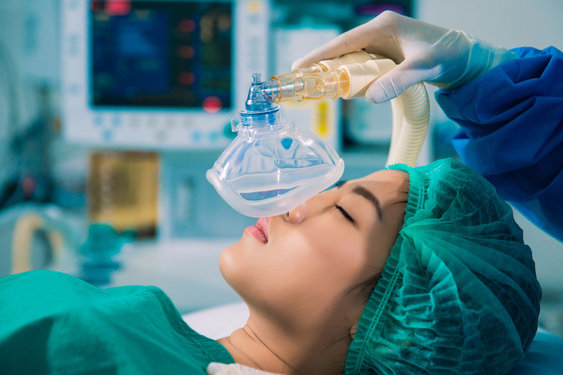
When patients come in for surgery, they often wonder what it will be like recovering from anesthesia. While the side effects may be uncomfortable, patients may find relief knowing that the symptoms are short-lived and often fade quickly. While not all of the treatments at Specialty Surgical Center use general anesthesia (completely asleep), many of them do, so it is important for patients to understand how anesthesia effects the body post-operatively in order to have a more positive surgical experience.
During the procedure, an anesthesiologist will be closely monitoring you in order to ensure the body is staying in balance while under anesthesia. Once the patient is taking to the recovery room, he or she may begin to wake up, but some effects of anesthesia may still be present for a few days after the procedure. One of the most common side effects of general anesthesia is a condition known as post-operative nausea and vomiting (PONV). Additional symptoms may include confusion, sore throat, shivering, and feelings of exhaustion. The anesthesiologist can speak to patients before their surgery to discuss the patient’s risk of developing these side effects post-operatively, because they may be more likely during certain procedures.
There are ways the Specialty Surgical Center staff can help mitigate these symptoms. The team will instruct patients on proper post-operative nutrition and adequate water intake in order to reduce any feelings of discomfort. You may not be able to eat or drink right away, but since you will come into surgery on an empty stomach, having a small amount of food may help.
Because Specialty Surgical Center is an ambulatory surgery center, patients will get to return home the same day and will not require a hospital stay, so many of the side effects may occur in the comfort of one’s home. Our anesthesiology team advises that symptoms may last for a few days after the procedure, but the staff will be available to recommend ways to make your recovery at home as comfortable as possible. For example, in order to curb symptoms of nausea, a patient may find relief slowly sipping on ginger ale. Additionally, some medications may be handled better if they are taken with food.
While it may seem as though general anesthesia has many side effects, there are still ways to prevent them. Before your surgery, speak to your anesthesiologist about an after care game plan to help manage symptoms. Learning about the entire procedure often treats anxieties surrounding surgery, and our staff is willing to help in any way they can.
Specialty Surgical Center is located in Sparta, New Jersey and our staff consists of board certified surgeons and anesthesiologists performing procedures in Orthopedics, Sports Medicine, Spinal Care, Podiatry, Urology, Pain Management, ENT, Hand Surgery, Lithotripsy, Brachytherapy, GYN and Laser Surgery.
For more information about Specialty Surgical Center, call 973-940-3166 or visit our Contact Page.
The advice and information contained in this article is for educational purposes only and is not intended to replace or counter a physician’s advice or judgment. Please always consult your physician before taking any advice learned here or in any other educational medical material.
What To Expect in the Recovery Room

Surgery, even if it’s an outpatient procedure, can be an unknown and scary thing to face. Patients are surrounded by extensive medical staff, hooked up to monitors, and connected to an IV, and everything may feel extremely foreign. In an effort to make surgery less overwhelming, the Specialty Surgical Center staff wants to prepare patients for what they can expect in the recovery room. After all, it is the first thing they see after waking up from their anesthesia.
The time spent in the recovery room (also referred to as a post-anesthesia care unit) is usually a few hours, but some patients may only need to spend just an hour or less here depending on the surgery. Initially, patients may be given oxygen and have their vitals monitored. This can include everything from temperature, blood pressure, pulse, and other critical measurements. Because some of the effects of the anesthesia may still linger, it’s possible for patients to not remember this stage very closely.
Safety is our highest priority before, during, and after surgery. We want to minimize any risk of post-operative complications, so patients may be asked to move their legs or wear compression socks to prevent blood clots. In addition, patients may be asked to do breathing exercises to lower the risk of post-operative pneumonia. Sometimes patients might feel dizzy as a side effect of the anesthesia, so medication to relieve nausea may be administered through the intravenous line. Pain medication may also be given to the patient at this time.
As a safety precaution, families are not typically allowed in the recovery room within the first 30 minutes. An exception may be made if the patient is a child. If this is the case, there may be a limit that only one parent may visit the child. Families may visit once the patient has moved to Stage II Recovery.
Before patients are discharged and head home, they are given a copy of Specialty Surgical Center’s post-op instructions. This list includes vital information for safe practices at home, so it’s important that patients read it carefully. This may include wound care, medication instructions, diet specifications, recovery times, and much more.
Specialty Surgical Center is located in Sparta, New Jersey and our staff consists of board certified surgeons and anesthesiologists performing procedures in Orthopedics, Sports Medicine, Spinal Care, Podiatry, Urology, Pain Management, ENT, Hand Surgery, Lithotripsy, Brachytherapy, GYN and Laser Surgery.
For more information about Specialty Surgical Center, call 973-940-3166 or visit our Contact Page.
The advice and information contained in this article is for educational purposes only and is not intended to replace or counter a physician’s advice or judgment. Please always consult your physician before taking any advice learned here or in any other educational medical material.
Brachytherapy – Common Questions and Answers
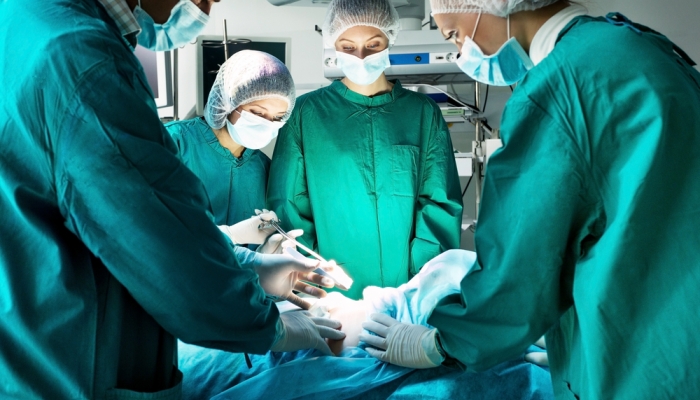
Dr. Robert J. Cole, a radiation oncology partner at Specialty Surgical Center, specializes in brachytherapy (prostate seed implantation). He is currently the only seed implant specialist in New Jersey certified by Pro-Qura, a prestigious program developed by the Seattle Prostate Institute. Dr. Cole often gets asked a lot of questions about the brachytherapy procedure. Today, the team at Specialty Surgical Center is taking the time to answer some of those questions.
1. What are the “seeds” used during implantation?
When we talk about seed implantation, we are referring to pre-filled radioactive pods that are inserted into cancerous prostate tumors with a needle. In some cases, these pods may be inserted at intervals instead of all at once. The seeds are highly effective because they decay quickly, allowing the radiation to work from inside the tumor.
2. How long will I undergo treatment?
In some cases, if the tumor is more aggressive and fast-growing, physicians may use seeds that produce a larger quantity of radiation for a shorter duration. Other times, physicians recommend a different type of seed for slower growing tumors. Fortunately, patients do not require extensive downtime after this procedure. Most patients resume day-to-day activities in less than a week.
3. What happens to the seed after treatment?
After the seeds administer the radiation, they remain in the prostate. Removing the seeds has not been proven as beneficial or harmful to the patient. Therefore, a second procedure is not necessary to discard the seeds. Instead, the seeds may move on their own and fall into the bladder. A physician will provide patients with post-operative instructions on what to expect when these seeds are expelled through urine.
4. Are there any side effects to brachytherapy?
As with many prostate cancer treatments, patients who undergo brachytherapy are at risk of developing incontinence. This is particularly true for elderly men, but a physician will discuss risks on a case-by-case basis. In addition to incontinence, people may feel the urge to urinate frequently and experience a burning sensation as they go. If blood is found in the urine, there is no need to panic, as this is normal. However, patients should call Specialty Surgical Center immediately if larger clumps of blood are found after urinating.
At Specialty Surgical Center, we are happy to answer all questions so patients can feel prepared and ready for any radiation oncology treatment. If you have any questions or concerns about your treatment, please do not hesitate to call us.
Specialty Surgical Center is located in Sparta, New Jersey, and our staff consists of board certified surgeons and anesthesiologists performing procedures in Orthopedics, Sports Medicine, Spinal Care, Podiatry, Urology, Pain Management, ENT, Hand Surgery, Lithotripsy, Brachytherapy, GYN and Laser Surgery.
For more information about Specialty Surgical Center, call 973-940-3166 or visit our Contact Page.
The advice and information contained in this article is for educational purposes only and is not intended to replace or counter a physician’s advice or judgment. Please always consult your physician before taking any advice learned here or in any other educational medical material.
Vaginal Fistula: Causes, Symptoms, and Treatments

Urogynecology is a medical subspecialty that combines the practices of urology and gynecology to effectively diagnose and treat conditions affecting women. Some of the most common urogynecology conditions include cystocele, enterocele, genital prolapse, urinary incontinence, and more. For the purpose of this blog, the physicians at Specialty Surgical Center are going to discuss the causes, symptoms, and treatments for a unique urogynecology disorder that is called a vaginal fistula.
A fistula is a general medical term that describes an abnormal connection between two organs. Fistulas can develop in an artery, colorectal organ, or reproductive organ. In this instance, a fistula forms in the wall of the vagina and connects itself to a nearby organ. There are different kinds of fistulas that can develop and affect various organs. For example, a vesicovaginal fistula describes a passage or hole that forms between the vagina and urinary tract. Other examples include a rectovaginal fistula, colovaginal fistula, and enterovaginal fistula.
Causes
Vaginal fistulas are usually caused by prolonged tissue damage to one specific area in the organ. Over time, the damaged tissue breaks down and causes a fistula to open up. Some of the most common causes of a vaginal fistula include:
- Surgery to the vagina, perineum, anus, or rectum
- Cancer treatment, specifically radiation therapy
- Inflammatory bowel disease
- Crohn’s disease
- Ulcerative colitis
- Diverticulitis
- A tear in the perineum after childbirth
Symptoms
Fortunately, vaginal fistulas are, for the most part, painless. While they may not cause physical discomfort, vaginal fistulas can lead to urinary issues, such as urinary incontinence. It’s important to see a physician right away about a vaginal fistula because this condition causes feces and urine to pass into the vagina. If this occurs for an extended period of time, an infection may develop. Specific vaginal fistula symptoms include:
- Fluid leaking from the vagina
- Foul-smelling vaginal discharge
- Gas releasing from the vagina
- Vaginal infections
- Soreness around the genital area
Treatments
Treatment for a vaginal fistula depends largely on the cause and patient’s symptoms. More often than not, the fistula will need to be repaired through a minimally invasive procedure. Before the patient undergoes surgery, he or she may be asked to take antibiotics to reduce the risk of infection. Moreover, underlying conditions will need to be evaluated to determine supplemental treatment options.
If you suffer from a vaginal fistula, let the experts at Specialty Surgical Center help! For more information about our practice, please call 973-940-3166 or visit our Contact Page.
Specialty Surgical Center is located in Sparta, New Jersey, and our staff consists of board certified surgeons and anesthesiologists performing procedures in Orthopedics, Sports Medicine, Spinal Care, Podiatry, Urology, Pain Management, ENT, Hand Surgery, Lithotripsy, Brachytherapy, GYN and Laser Surgery.
How to Maintain and Care for a Tracheostomy
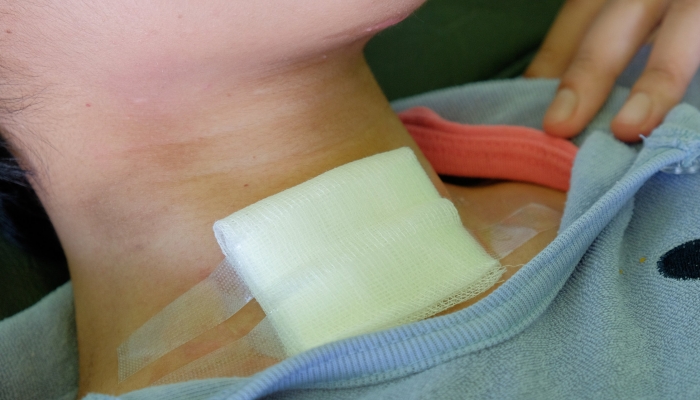
A tracheostomy is a surgically created opening through the front of the neck into the trachea. The physicians at Specialty Surgical Center are highly skilled in the surgical procedure that creates this opening, which is called a tracheotomy.
Patients who require a tracheostomy often suffer from conditions or ailments that require the ongoing, long-term use of a breathing machine called a ventilator. In other instances, a tracheotomy may be performed in emergency situations to help a patient breathe after their airway has been blocked or obstructed.
While it is possible for a tracheostomy to be surgically closed if it’s no longer needed, for many patients with chronic breathing problems, this opening is permanent. There are a number of conditions that may require a tracheostomy, some of which include:
- Anaphylaxis
- Facial or neck burns
- Birth defects
- Cancer
- Coma
- Infection
- Injury to the larynx, chest wall, or lungs
- Paralysis
If you have a permanent tracheostomy, you know you have to care for it to maintain your health. If your stoma is not cared for properly, infections and other complications can develop, which can decrease your quality of life. Before you’re discharged from the surgery center or hospital, a nurse will review long-term care instructions for your tracheostomy. You may need a family member, loved one, or caretaker present to ensure the instructions are fully understood.
Because a tracheostomy hinders your ability to speak with others, you will need to adopt a new way of communicating your needs. Consider establishing hand signals or having a pen and paper nearby to communicate discomfort and pain. In regards to caring for and maintaining your tracheostomy, you’ll need a number of supplies to ensure a quick and sterile cleaning process.
Here are just a few things you may need during the cleaning process:
- Gloves
- Hydrogen peroxide
- Clean gauze pads
- Clean cotton swabs
- Clean washcloth or towel
- Clean toothbrush or pipe cleaners
- Saline or distilled water
- Trach tube ties
- Clean scissors
It’s important to first wash your hands with soap and warm water. You’ll want to stand or sit in front of a mirror to have a clear view of your tracheostomy. Put the gloves on and suction your trach tube. You may need to apply a gauze pad over your stoma to prevent debris from entering the opening. These next few steps apply to patients with an inner cannula:
- Remove the inner cannula and hold it over a sink to clean it with the hydrogen peroxide. Make sure you clean the inside and outside of the tube thoroughly. Y
- You’ll want to use your pipe cleaners and toothbrush to clean the inner cannula to ensure no residue is built up.
- Once you’re satisfied with the cleanliness of the inner cannula, rinse the tube with saline, tap, or distilled water. Dry to inner cannula completely, re-insert the inner cannula, and lock it in place.
- Soak the cotton swabs in a half hydrogen peroxide, half water solution and use them to clean the outer cannula.
- Soak the towel or washcloth in the saline solution and use it to clean the skin around your stoma. If you notice any redness, tenderness, or infection, alert a family member right away.
- Lastly, you’ll need to measure and cut new trach tube ties. You may need a loved one or caregiver to help you with this process to ensure everything fits comfortably.
- When you’ve finished cleaning all parts of your tracheostomy, throw away any used gauze, cotton swabs, gloves, etc. and be sure to wash your hands thoroughly. Do NOT reuse dirty or used towels or any old tracheostomy supplies to re-clean your device.
Your nurse will provide more in-depth instructions during your discharge. While these instructions may be helpful, it’s important to seek the advice of a trained health professional before attempting anything on your own. Please call the Specialty Surgical Center if you have any questions regarding the care of maintenance of your tracheostomy.
Specialty Surgical Center is located in Sparta, New Jersey and our staff consists of board certified surgeons and anesthesiologists performing procedures in Orthopedics, Sports Medicine, Spinal Care, Podiatry, Urology, Pain Management, ENT, Hand Surgery, Lithotripsy, Brachytherapy, GYN and Laser Surgery.
For more information about Specialty Surgical Center, call 973-940-3166 or visit our Contact Page.
The advice and information contained in this article is for educational purposes only and is not intended to replace or counter a physician’s advice or judgment. Please always consult your physician before taking any advice learned here or in any other educational medical material.









